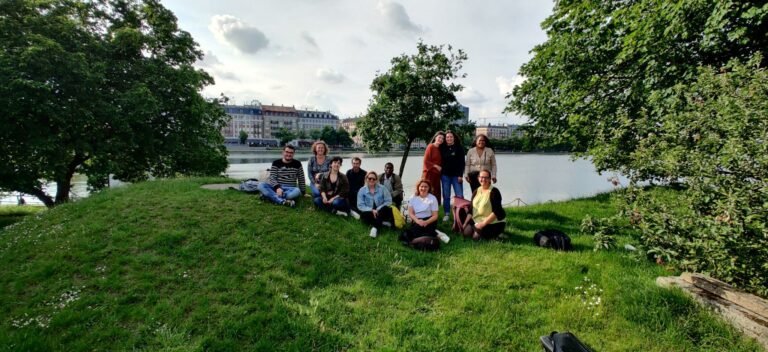What was the purpose?
The main purpose of this academic exchange was to discover a sensitive area in Roskilde, near Copenhague. Using the social design ethics, the aim was to interact with local care actors and actresses in order to understand what are the particular needs of this area, and then to think together about how to address them.
The other purpose of this exchange was to learn about care theories and to discover the research of Danish and French researchers, as well as reenforcing the international links between the two universities and students. It was also a way to construct a bridge between the academic knowledge and the field in Roskilde.
What did we experience?
We have worked with social design methodology, while conducting ethnography analysis through participatory observations, interviews and field notes. We perceive that this co-design approach was iterative, thus helping us to continuously reflect on our research. Also, we enriched our project by implementing theory which has been presented in the morning lectures. Additionally, based on our field knowledge we could question theoretical frameworks in ethics of care. Besides, we enjoyed participating in the creative phase, where through brainstorming sessions we could generate tangible solutions for representatives from Æblehaven neighborhood.
What are the outputs?
Social design/social innovation
● Enhance our knowledge of social design and innovation, and implement the exploratory phase, the generative phase and the evaluating phase of the design process in a condensed schedule.
● Propose new ideas and improve existing initiatives, by talking with the people associated with the social work in Æblehaven.
● The private association: “Boligselskab Sjælland” (non-profit housing association) have good, and maybe even better opportunities to create change quicker than the government, because they are smaller scale and have less restrictions from theory to practice.
An international exchange
● We have learned to learn from a different perspective
● We have learned more dimensions of the concept of care (e.i. Brutal care) and we have seen the activity level of care in action in Æblehaven, which we now can bring back to the university of Paris 8 and develop in our research.
● There is a higher level of student-participation and student-engagement in the teaching process at Roskilde University than in France in general, which motivates us students to think about the presentations, being attentive and asking questions to have a dynamic learning process.
● Denmark, compared to France, has a very flat-hierarchy/flat structure because teachers are interested in engaging with the student. We discussed cultural and religious norms and habits that might explain these differences.
● Group-work is the most used learning practice at Roskilde university, and this was how the seminar was designed. It is also the way the student workshops held in the Paris 8 CNIS are organized, although it is not customary in Paris 8 as a whole.
Authors:
Participants:
BAUDRIER Helios (student)
FAHIM Lou (university employee)
FERRAZ ARAUJO Delma (student)
KRISTENSEN Aleksandra Ewa (student)
LEMEUNIER Chloé (university employee)
LEVASSEUR Damis (student)
MALVERDE Flora (PhD student)
OUEDRAOGO Sougrinooma Thierry (student)
SLIMANI Amel (PhD student)
SALACZ Nikola Helena (Student)
TREMOULU Elodie (university employee)
Organizers:
BRUNET Carole (organizer, university employee)
DUPRET Katia (Organizer, university employee)
HYLDKROG, Ronja (organizer, student)

